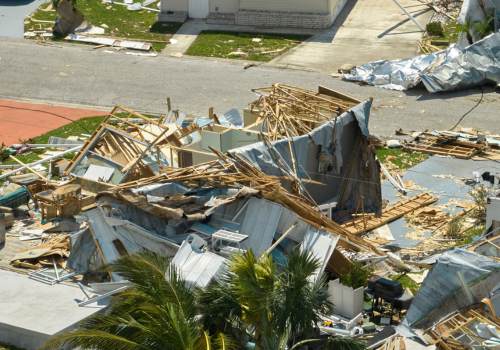10 Times Breaking Your Lease Early Is the Only Option
While signing a lease represents a binding commitment, life doesn’t always follow your carefully laid plans.
You’ll find that certain circumstances can force your hand in breaking a lease agreement, even if you’re typically the kind of person who honors their contracts to the letter.
Whether you’re facing an unexpected military deployment or dealing with unsafe living conditions, there are legitimate reasons to terminate your rental agreement ahead of schedule.
Before you make this significant decision, though, you’ll want to understand exactly which situations legally justify an early exit and how to protect yourself in the process.

Military Deployment or Transfer
Military service members who receive deployment orders or a permanent change of station (PCS) have special legal protections under the Servicemembers Civil Relief Act (SCRA) when breaking a lease.
You’ll need to provide your landlord with written notice of your military orders and your intent to terminate the lease.
The termination becomes effective 30 days after the next rent payment is due.
To exercise your SCRA rights, you must guarantee your military service materially affects your ability to fulfill the lease terms.
This applies if you’re entering active duty, receiving PCS orders, or deploying for 90+ days.
Your spouse can act on your behalf to terminate the lease if you’re already deployed.
Keep copies of all documentation, including your orders and notification letter, to protect your rights under SCRA.
Domestic Violence Situations

While service members have specific protections, survivors of domestic violence also have legal rights to break their lease early.
Under federal and state laws, you’re entitled to terminate your lease if you can provide documentation of domestic abuse, such as a restraining order, police report, or written statement from a qualified third party.
You’ll need to give your landlord written notice of your intent to terminate, typically 30 days in advance, though some states allow for immediate termination in emergency situations.
Most states require you to provide proof of the domestic violence incident within the last 3-6 months.
You’re generally responsible for rent only through your vacate date, and your landlord must return your security deposit according to state law, minus any legitimate deductions.
Serious Health Emergencies
A severe medical condition may give you grounds to terminate your lease before its end date.
If you’ve developed a serious illness, disability, or injury that makes your current living space unsuitable or unsafe, you’ll likely have legal protection to break your lease.
You’ll need to provide your landlord with documentation from a licensed healthcare provider that clearly states why your condition necessitates relocation.
This could include situations where you require wheelchair accessibility, can’t climb stairs anymore, or need to move closer to specialized medical care.
Most states require landlords to make reasonable accommodations, but if modifications aren’t feasible, early lease termination becomes your right.
Be specific in your written notice about your health condition and give your landlord reasonable time to process your request.
Unsafe Living Conditions

Living conditions that threaten your health and safety represent another valid reason to break your lease early.
If your rental unit has severe mold growth, pest infestations, structural hazards, or lacks essential utilities, you’re legally entitled to terminate your lease.
Document these issues thoroughly with photos, videos, and written complaints to your landlord.
Most states require landlords to maintain “habitable” living conditions under the implied warranty of habitability.
If your landlord fails to address serious safety violations within a reasonable timeframe after receiving written notice, you can legally break your lease.
You’ll need to prove that the conditions violate local health or building codes and that you’ve given your landlord adequate time to fix the problems.
Consider having a licensed inspector or code enforcement officer evaluate the property to strengthen your case.
Job Loss or Relocation
Losing your job or receiving a mandatory work transfer can provide grounds for early lease termination, though you’ll need to review your lease agreement carefully.
Many leases include specific clauses addressing job-related relocations, particularly for military personnel under the Servicemembers Civil Relief Act (SCRA).
If you’ve lost your job, you might qualify for early termination if your lease contains a hardship or unemployment clause.
Document your job loss with a termination letter and proof that you’ve applied for unemployment benefits.
For work transfers, obtain an official transfer letter from your employer stating the mandatory nature of the move and its distance.
You’ll typically need to provide 30-60 days’ notice and may still owe an early termination fee, but these circumstances often give you stronger negotiating power with your landlord.
Natural Disaster Damage

When natural disasters cause significant damage to your rental property, most state laws permit early lease termination if the damage renders the unit uninhabitable.
You don’t have to continue paying rent for a property that’s unsafe due to flood damage, fire aftermath, or structural issues from earthquakes or storms.
Your landlord must provide you with a safe, livable dwelling under the implied warranty of habitability.
If they can’t repair the damage within a reasonable timeframe, you’re legally entitled to break your lease without penalty.
Document all damage with photos and written reports, and formally notify your landlord of the uninhabitable conditions.
Keep copies of all official disaster declarations, insurance claims, and inspection reports to protect your rights.
You’ll need this evidence if your landlord disputes your decision to terminate the lease early.
Landlord Privacy Violations
In accordance with tenant rights laws, you can legally terminate your lease if your landlord repeatedly violates your privacy through unauthorized entry, surveillance, or harassment.
You’re entitled to “quiet enjoyment” of your rental property, which means your landlord can’t enter without proper notice except in genuine emergencies.
Document every privacy violation, including dates, times, and circumstances.
Take photos or videos of unauthorized surveillance equipment, and keep copies of any communications where you’ve asked your landlord to respect your privacy.
Most states require landlords to provide 24-48 hours’ written notice before entering your unit.
If your landlord consistently ignores these requirements or installs cameras without your consent, you’ll likely have grounds to break your lease without penalty.
Consult a tenant rights attorney to review your evidence before proceeding.
Legal Property Sale

A legal property sale by your landlord can provide grounds for early lease termination, though specific rights vary by jurisdiction.
When your landlord sells the property, you’ll need to review your lease agreement and local laws to understand your position.
Some jurisdictions require the new owner to honor existing leases, while others allow lease termination.
If you receive notice that your rental property’s being sold, you should immediately request written documentation of the sale.
You’ll want to confirm whether the new owner intends to occupy the property themselves, as this often strengthens your right to break the lease.
Keep all communications in writing, and don’t rely on verbal promises from either the current landlord or potential buyer.
Document everything carefully, as you may need evidence to support your lease termination without financial penalties.
Building Code Violations
Beyond property sales, building code violations represent legitimate grounds for breaking your lease early.
If your landlord fails to maintain the property according to local building codes and safety regulations, you’re legally entitled to terminate your lease without penalty.
Common violations include faulty electrical wiring, inadequate fire exits, structural defects, or unsafe plumbing systems.
You’ll need to document these violations thoroughly. First, report the issues to your landlord in writing.
If they don’t address the problems within a reasonable timeframe, contact your local building inspector or housing authority to conduct an official inspection.
Once violations are confirmed, you can notify your landlord of your intent to terminate the lease.
Keep copies of all inspection reports, correspondence, and photographs as evidence to protect yourself from potential legal challenges.
Medical Facility Admission

Many states recognize long-term medical facility admission as valid grounds for early lease termination.
If you’re facing extended hospitalization, nursing home placement, or admission to an assisted living facility, you’ll often have legal protection to end your lease without penalty.
To exercise this right, you’ll need to provide your landlord with written documentation from your healthcare provider stating that you require long-term medical care.
Most states require 30 days’ notice and proof that you’ll be admitted for a period extending beyond 60 days.
You must also be able to demonstrate that maintaining your rental unit would create undue financial hardship while you’re receiving care.
Remember to check your state’s specific requirements, as the notice period and documentation standards vary by jurisdiction.
FAQs
Does Breaking a Lease Automatically Disqualify You From Future Rental Applications?
Breaking a lease won’t automatically disqualify you from future rentals, but it can make approval harder. You’ll need to be upfront about it and may face stricter requirements or need a larger security deposit.
Can Roommates Be Held Responsible if One Person Breaks the Lease?
Like links in a chain, you’re all bound together. If you’ve signed a joint lease, each roommate can be held fully responsible for rent and damages, even if just one person breaks the lease agreement.
Will Renters Insurance Cover Lease Termination Penalties Under Any Circumstances?
Your standard renters insurance won’t cover lease termination fees. However, if you’re breaking your lease due to covered perils like fire damage or uninhabitable conditions, your policy might help with relocation expenses instead.
Are Lease-Breaking Fees Negotiable if You Find a Replacement Tenant?
Like playing poker, you’ve got room to negotiate lease-breaking fees when presenting a qualified replacement tenant. Many landlords will reduce or waive penalties if you find someone to take over, saving them marketing costs.
How Long Do Lease Violations Stay on Your Rental History Record?
Lease violations typically stay on your rental history for 7 years, but you can dispute inaccurate records through credit bureaus. Some landlords may overlook older violations if you’ve maintained good rental history since then.
Final Thoughts
Breaking your lease early isn’t just a right—it’s sometimes a necessity.
Consider the 2019 case of Johnson v. Highland Property Management, where a tenant successfully terminated their lease after documented black mold exposure threatened their family’s health.
You’ll need to understand your state’s specific requirements, maintain thorough documentation, and provide proper notice to protect your rights when circumstances force an early termination.